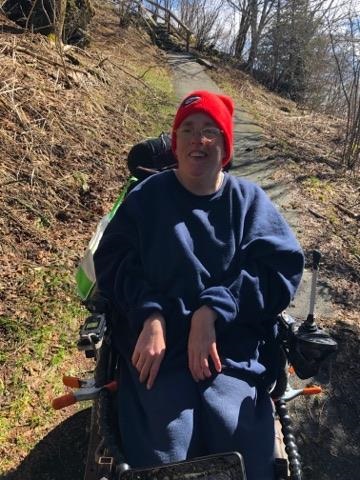We have made it to October 2020! It’s been a long and challenging year for everyone. October is AAC Awareness Month. Now, more than ever, communication is extremely important. People are unable to get together in person. We are social creatures and our social lives have been uprooted. For those who need access to augmentative and alternative communication (AAC), our human right to communicate using AAC tools and methods are more significant than ever. Many individuals who need AAC live in congregate settings, such as group homes, where contact with the outside world frequently has been restricted to protect the health of the group. Many individuals with disabilities do not have access to or utilize the Internet (Chadwick, Wesson, & Fullwood, 2013; Sabatello, Burke, McDonald, & Appelbaum, 2020). In times like these, Internet access is almost required to maintain contact with family and friends. Yet, social isolation is faced by many individuals who need AAC. Therefore, awareness about AAC this year to enhance the lives of those who need it is critical.
A part of AAC awareness is examining how our cultural attitudes affect people who need AAC. On Wednesday, October 14th from 7pm-8pm, Stephanie Faso, MA will be our speaker for our AAC Awareness Month webinar. The webinar is entitled, A Discussion of Empowering Autonomy and Self in Individuals with AAC Needs. This webinar will explore the various cultural attitudes toward people with AAC needs, and how clinicians, especially AAC specialists, can empower those individuals in relation with their autonomy, independence, and sense of self. Ms. Faso’s life experiences will be integrated throughout this discussion of how ableism shapes and reshapes the cultural perception of those with AAC needs. To register for this Webinar please go to the following link: https://attendee.gotowebinar.com/register/7224900111858250000.
References
Chadwick, D., Wesson, C., & Fullwood, C. (2013). Internet access by people with intellectual disabilities: Inequalities and opportunities. Future Internet, 5(3), 376–397.
Sabatello, M., Burke, T. B., McDonald, K. E., & Appelbaum, P. S. (2020). Disability, ethics, and health care in the Covid-19 pandemic. American Journal of Public Health, 110(10), 1523–1527.

Tracy Rackensperger, Ph.D.
USSAAC Vice-President for People Who Use AAC and Their Families
Tracy Rackensperger, Ph.D. holds a doctoral degree in Social Foundations of Education as well as a public service faculty position within the College of Family and Consumer Sciences, Institute on Human Development and Disability at the University of Georgia. Dr. Rackensperger has published scholarly works regarding transition for those who have difficulty communicating and is a frequent presenter at national conferences. Dr. Rackensperger personally uses AAC.
